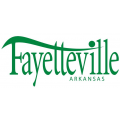There are several certification options for students interested in pursuing a nursing career in Arkansas. Since estimates show that the state will see a 5% increase in nursing jobs available by 2020, it is important to find the right program and to understand what type of nursing certification is required to begin practicing.
Nursing assistant
Arkansas
We've organized a comprehensive list of Arkansas nursing schools. Below you'll find information on specific nursing programs such as LPN certificates and ADN, BSN, and MSN degrees. You'll also find a profile of nursing education and careers in each major Arkansas city.
Healthcare is a rapidly growing area of employment in Fort Smith, Arkansas, and nursing is one of the fastest-growing occupations in this sector. The Fort Smith metropolitan area is home to 30 nurse practitioners (NPs), 2,200 registered nurses (RNs), 1,000 licensed practical nurses (LPNs), and almost 1,800 certified nursing assistants (CNAs). Though plentiful, nursing jobs in the Fort Smith area are competitive. Earning a degree, diploma, or certificate from a top local nursing school will help you stand out from the crowd.
Nurses provide essential services within the healthcare system, and there are opportunities available in Arkansas for every type of nurse. In the Little Rock area there are numerous positions available for certified nursing assistants (CNAs), licensed practical nurses (LPNs), and registered nurses (RNs).
Certified nursing assistant (CNA) programs
There are several types of nurses and each of their roles is vital to the healthcare field. Three of the most common roles in nursing are certified nursing assistants (CNAs), licensed practical nurses (LPNs), and registered nurses (RNs). Each of these jobs correspond with different levels of education, responsibility, and compensation. Regardless of the specific role, there are opportunities to work in the nursing field in the areas surrounding Fayetteville, Springdale, and Rogers, and all throughout the state of Arkansas.
Many registered nurses (RNs) continue on to pursue a master of science in nursing (MSN) degree. This advanced post-graduate degree gives RNs the qualifications to become health policy experts, nurse administrators, clinical nurse leaders, and much more. There are many opportunities in Arkansas for RNs at every level, but the current trend in healthcare favors job applicants with more and more education. This makes nurses who hold MSNs particularly appealing candidates to potential employers.
Registered nursing is not only fulfilling and lucrative career, but the demand for RNs is increasing at a significantly higher rate than the average job growth rate. The best approach to becoming a registered nurse (RN) is earning a bachelor of science in nursing (BSN) degree. If you’re a licensed RN already, but you’d like to continue your education to earn a bachelor’s degree, there are also RN-to-BSN programs widely available throughout Arkansas. Earning a bachelor’s degree will train you to become a nurse and ensure you are a competitive applicant for positions in the field.
Two types of associate’s degree programs are available to aspiring nurses: the associate’s degree in nursing (ADN) and the associate of applied science in nursing (AASN). There are many accredited nursing schools approved by the Arkansas State Board of Nursing that offer both ADN and AASN programs. The focus of both ADN and AASN programs is to train and prepare you to become a registered nurse (RN).
The medical community relies on licensed practical nurses (LPNs) to perform a variety of essential tasks. Under the supervision of registered nurses and physicians, LPNs provide basic patient care such as monitoring symptoms and vital signs, changing bandages, and administering injections and medications. LPNs are versatile and can find work in hospitals, doctors’ offices, extended care facilities, and in private homes. Licensed practical nursing is a rewarding occupation by its own merits, and also serves as a strong starting point to pursue a career as a registered nurse (RN).
When choosing a nursing program, it is important to understand not only the costs associated with higher education, but also the type of return to expect upon earning a degree.
According to the Bureau of Labor Statistics, nursing is ranked among the top ten occupations in terms of job growth; when it comes to the most trusted professions, nursing is in the top five. Even more, it offers a wide variety of specialties, including work in schools, hospitals, medical clinics, home care, and more. With popularity, however, comes competition. To stay ahead, education is vital, since the type of education you pursue is a determining factor for getting an industry job.
Aspiring nurses in Arkansas have many educational options. Quite a few students choose to attend public university, primarily because the cost is substantially lower than at private colleges. As a result, the amount of loans and debt accrued at a public university will be significantly less burdensome.











